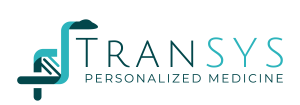Prof Yves Moreau
University of Leuven, Belgium
Federated and privacy-preserving analytics and machine learning for drug discovery and precision medicine
Abstract:
Federated analytics (“bring the computation to the data”) is a key emerging trend in the analysis of sensitive biomedical data. It implements – at the level of statistical and machine learning models – the central data minimization requirement of the GDPR by limiting the exchange of information between data controllers (and one or more aggregation hubs) to aggregate statistical data. If further protection of patient privacy or data confidentiality is necessary, such schemes can be turned into privacy-preserving algorithms that combine statistical aggregation with privacy-preserving analytics techniques (homomorphic encryption and multiparty computation). The increased protection comes nevertheless at the cost of increased computational load/latency and decreased flexibility. In this talk, I will address applications of these principles in several proof-of-concepts in genetic association studies, variant analysis, pharmaceutical drug-target activity prediction. I will also discuss how such strategies help address key requirements of the GDPR.
Biography:
Yves Moreau is a professor at the University of Leuven, Belgium. His team focuses on AI algorithms and software platforms for the integration of complex data in clinical genomics and drug discovery: (1) federated analysis of real-world clinical and genomic data, (2) data fusion algorithms for the identification of pathogenic genetic variation in rare genetic disorders and liquid biopsies, and (3) data fusion for drug discovery and drug design. At the algorithmic level, he focuses on the development of novel AI methods, such as deep learning and Bayesian matrix factorization, for the fusion of heterogeneous sparsely-observed data; and on privacy-preserving implementations of such methods. He aims at demonstrated clinical or industrial applicability and proven effectiveness in human genetics research and drug discovery.
He is also engaged in a reflection on how information technology and artificial intelligence are transforming our world and on how to make sure this transformation is beneficial for all. In particular, he is actively pushing back against the emergence of surveillance societies that has been made possible by such technological advances.
Return to School information


